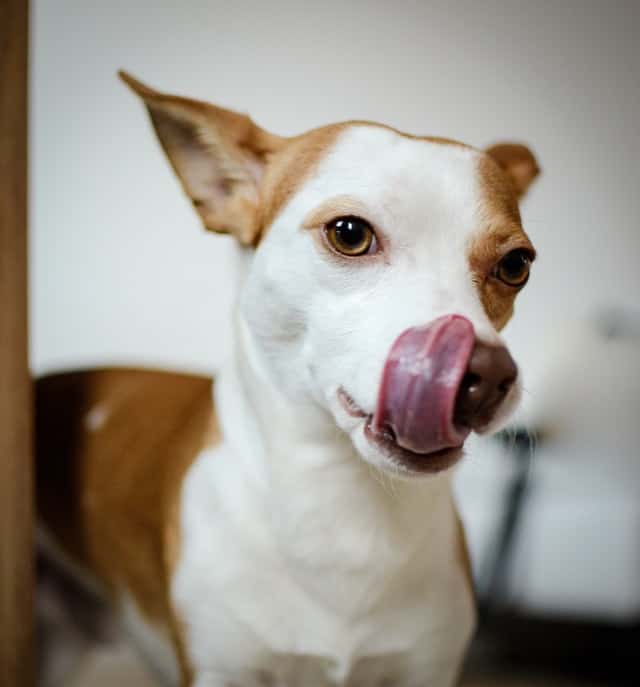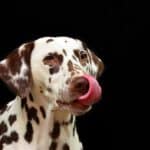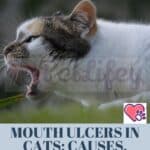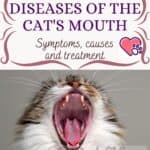
Dogs usually lick their mouths in association with food, but that’s not all. Here’s what this behavior can mean.
When a dog licks his mouth, this behavior is usually associated with food. For example, after eating or salivating while watching his favorite food. However, this behavior can also occur outside of this motivation and for a variety of other reasons.
Some veterinarians and animal behavior experts claim that there are different types of licking . On the one hand, there are those related to appetite, which involve large lateral movements of the tongue relative to the mouth. On the other hand, there are the simpler and shorter movements that basically focus on salivation.
Most common causes for Dog Licking its Mouth
Dehydration
After the food factor, excessive heat, exercise or the need to drink water are the most common reasons for a dog to lick his mouth. If your pet continues to lick its mouth after resting and cooling down, it may be more severe dehydration . Some of the symptoms that indicate increased severity are dull gums, sunken eyes, and loss of skin elasticity. Additionally, these can be accompanied by vomiting, lethargy and diarrhea.
Fear and anxiety
When dogs are afraid of a situation they can’t deal with, they tend to engage in this behavior. Therefore, when threatened by another animal or person, they would rise as a gesture of submission and appeasement. However, it can also become a nervous habit.
Malaise in the mouth
When a dog is constantly licking his mouth, it can also be a symptom of tooth decay, periodontal disease, or other oral diseases. Although the most appropriate thing, if there is excessive salivation, is to consult a veterinarian, owners can check in advance if there is inflammation of the salivary glands. To do this, check the state of the lower jaw and under the tongue.
Nausea
The need to vomit after ingesting a food , or another type of substance rejected by the stomach, can cause continual licking and swallowing. This is because there is an increased production of saliva that must be swallowed to avoid accumulation. Normally, the dog will try to eat some type of grass to help excrete what his body has been unable to digest. However, if the problem persists, it is best to go to the vet.
Pleasure
This type is very characteristic for being limited to slow, soft licks without almost getting the tongue out of the mouth. Sometimes, when a dog is very relaxed, due to a caress or a deep sleep, he licks his mouth or even drools. This behavior indicates the complete satisfaction of the animal.
Other reasons why your dog licks his mouth
Although less common, there are other reasons that can lead to excessive salivation in a dog.
Having licked a toad or other poisonous species
There are toads , salamanders, and even certain types of plants whose toxins can cause intense drool, swollen gums or vomit. The best thing to do in these cases is to act quickly, wash the pet’s mouth and go to the vet.
Ingestion of certain types of herbs
For example, spike-shaped plants can be accidentally swallowed and cause annoying choking. Dogs respond by sneezing, salivating and licking each other to cause them to be expelled. If the symptoms persist, it is recommended to visit the specialist who, in some cases, may resort to sedation to free the animal from the ingested plant.
Simply to get attention
Sometimes, the dog may associate licking his mouth with receiving attention from his owner. So, whenever he needs to play, wants to eat, or just to get attention, he will repeat this behavior.
Although there are many factors that can cause a dog to lick their mouth excessively, appetite is still the main reason . However, it is always advisable to spend a few minutes trying to understand the possible needs of the animal in order to interpret it in the best way.






